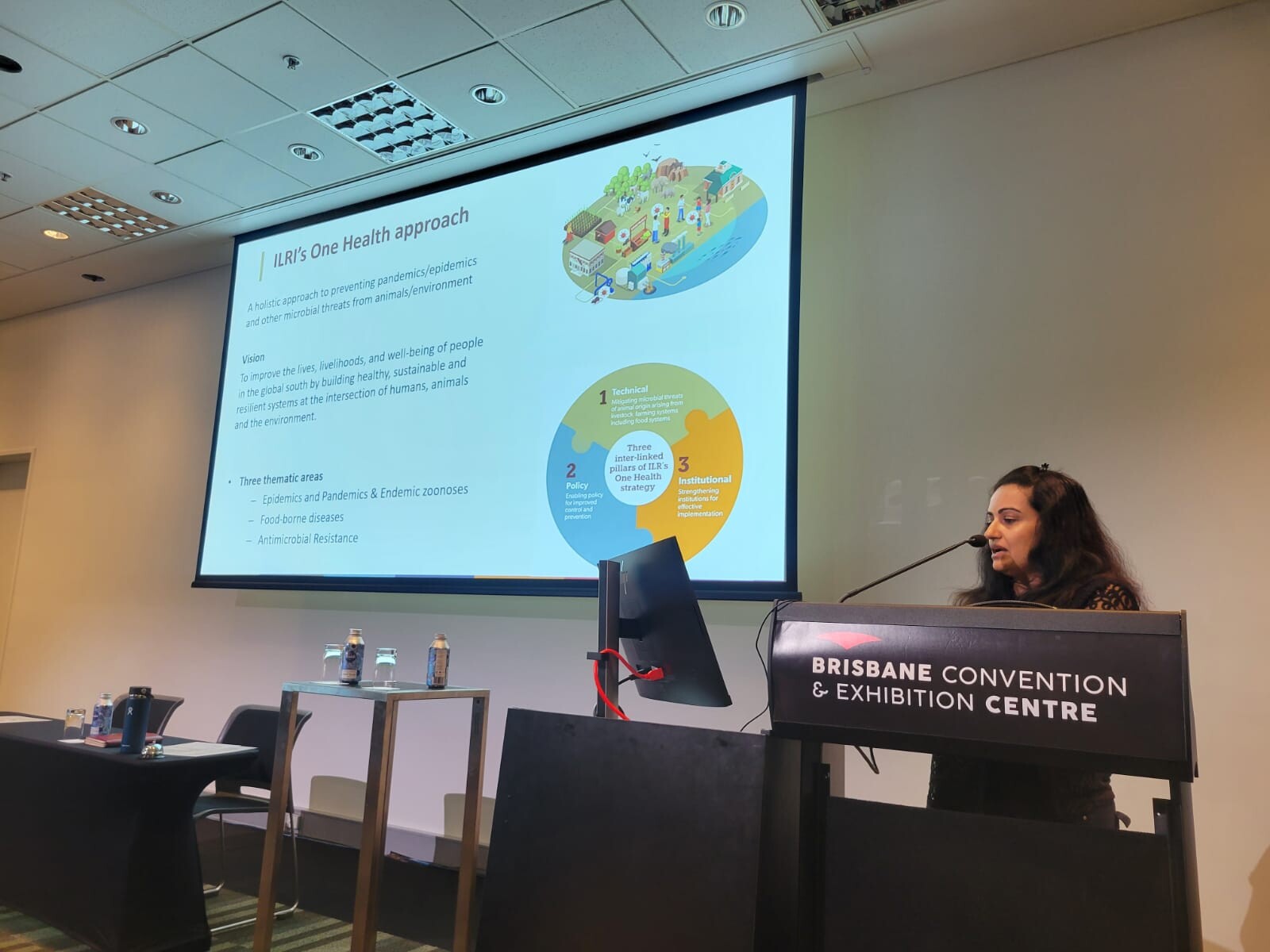Hunting and trade in wild animals remain among the most significant threats to biodiversity across Africa, Asia, and the Pacific. In all regions, widespread demand for wild meat, particularly in urban centres, drives unsustainable levels of hunting and trade. These pressures, combined with habitat loss and fragmentation, are fueling species decline and contributing to heightened zoonotic disease risks. The consequences are visible in the alarming loss of wildlife and the growing number of ‘silent’ or “empty” forests. <br>
The Asia-Pacific region is often cited as a hotspot for emerging infectious diseases, especially along wild meat value chains, where interactions between people, wildlife, and livestock are frequent and poorly regulated. Yet, similar dynamics are playing out across Africa. In East Africa, for example, wild meat is deeply embedded in rural livelihoods and urban consumption patterns. However, surveillance and policy responses remain fragmented. ILRI and its partners are working to address this gap through cross-sectoral studies at the Kenya-Tanzania transboundary region, urban settings in Nigeria and Kenya as well as Cote d’Ivoire investigating zoonotic risks, food security implications, and conservation impacts of the bushmeat trade. <br>
Despite the importance of this issue, trends in wild meat use remain under-researched, particularly across Africa and parts of Asia. The limited geographic scope of available data impairs the development of coordinated, evidence-based policy and regulatory frameworks. <br>
To help address this knowledge gap, scientists and practitioners gathered at the International Congress for Conservation Biology (ICCB 2025)in Brisbane for a symposium titled:
<br>‘From Forest to Fork: The impacts of wild meat use on food security, biodiversity conservation, rural livelihoods, and health in the Asia-Pacific.’ <br> <br><img data-entity-uuid=”0b838956-e072-47e4-b486-7c35ae442816″ data-entity-type=”file” src=”https://www.ilri.org/sites/default/files/inline-images/Speaker%20card%20-%20all.png” width=”1080″ height=”1080″><br><br>The session was co-organized by the Sustainable Wildlife Management (SWM) Programme and the International Livestock Research Institute (ILRI).<br>
Drawing on research from both Africa and Asia, the symposium highlighted how integrated, rights-based approaches can support more sustainable and equitable wild meat management. Participants explored lessons learned from field projects, outlined research gaps, and shared innovations to support safe handling, reduced zoonotic spillover risks, and better biodiversity outcomes. <br>
‘Conferences like ICCB provide an important platform for ILRI to connect its work on wild meat and One Health to global conservation and health agendas,’ said Ekta Patel, scientist at ILRI. ‘By showcasing research from Africa and Asia, we’re helping to shape solutions that are both locally grounded and globally informed.’ <br>
‘The experience of lessons learned from the SWM Programme and ILRI’s work at the wildlife interface both showcase the importance of integrated, inclusive and interdisciplinary approaches to achieve fair, healthy and sustainable management of wildlife and natural resources’ said Manon Mispiratceguy, SWM Programme Regional Coordinator at the Food and Agriculture Organization (FAO). <br>
The symposium’s timing was particularly relevant, aligning with growing momentum around the implementation of the Kunming-Montreal Global Biodiversity Framework (GBF) and calls for the integration of One Health principles into food systems and biodiversity policy. ILRI and its partners continue to support decision-makers in both regions with the data, dialogue, and tools needed to manage wild meat value chains in ways that protect people, wildlife, and ecosystems alike. <br>
<br>
About SWM <br>
The SWM Programme is an international initiative, co-funded by the European Union, the French Facility for Global Environment and the French Development Agency. It is being implemented by the Food and Agriculture Organization of the United Nations (FAO), the French Agricultural Research Centre for International Development (CIRAD), the Centre for International Forestry Research and World Agroforestry (CIFOR-ICRAF) and the Wildlife Conservation Society (WCS). Visit <a href=”https://www.fao.org/in-action/swm-programme” target=”_blank”>https://www.fao.org/in-action/swm-programme</a><br>
<p><br><br> </p>





